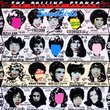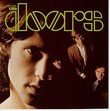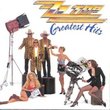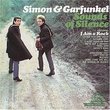| All Artists: Rolling Stones Title: Let It Bleed Members Wishing: 8 Total Copies: 0 Label: Abkco Original Release Date: 1/1/1986 Re-Release Date: 10/25/1990 Genres: International Music, Pop, Rock, Classic Rock, Metal Styles: Europe, Britain & Ireland, Blues Rock, Album-Oriented Rock (AOR), Supergroups Number of Discs: 1 SwapaCD Credits: 1 UPC: 018771800422 |
Search - Rolling Stones :: Let It Bleed
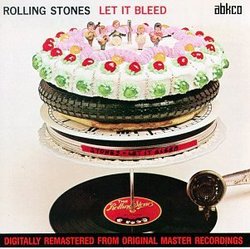 | Rolling Stones Let It Bleed Genres: International Music, Pop, Rock, Classic Rock, Metal
One of the Stones' most beloved albums, 1969's Let It Bleed was a benchmark for several reasons. First, founding guitarist Brian Jones died during the recording process. Second, the Stones take their last significant look ... more » |
Larger Image |
CD DetailsSynopsis
Amazon.com essential recording One of the Stones' most beloved albums, 1969's Let It Bleed was a benchmark for several reasons. First, founding guitarist Brian Jones died during the recording process. Second, the Stones take their last significant look at pure blues (Robert Johnson's spooky "Love in Vain") and country ("Country Honk," the two-stepping alter ego of "Honky-Tonk Women") before folding both styles into a cohesive rock & roll vision. Third, it contains some of the band's most eerie hits, such as the flame-enveloped "Gimme Shelter," the drug-reality anthem "Monkey Man," the epic "You Can't Always Get What You Want," and Mick Jagger's menacing "Midnight Rambler." --Steve Knopper Similar CDs
Similarly Requested CDs
|
Member CD ReviewsReviewed on 11/3/2006... What's to be said. A classic!
CD ReviewsLet It Bleed -- The Stones Come Into Their Own Geoff Hayes | Middlesex | 06/03/2008 (5 out of 5 stars) "Throughout the 1960's the Rolling Stones were basically a singles band who either felt compelled to or were urged by their manager to serve as the antithesis to the Beatles while simultaneously parodying their rivals' releases. Consider the sheer blatancy of "Their Satanic Majesties Request," the cover art of "Beggars Banquet" and, now, the title "Let It Bleed" juxtaposed with "Sgt. Pepper's Lonely Hearts Club Band," "The Beatles (aka the White Album)" and "Let It Be." Thankfully, with the Beatles' demise and Stones' manager Andrew Loog Oldham's departure, the group would begin to be more original until the late 1970's when they began to once again hop on the bandwagons of the day, be they punk, disco, etc. with the notable exception of the fantastic "Some Girls." Long before that album, though, and shortly before the almost equally amazing "Sticky Fingers" comes "Let It Bleed," where the Stones enter the world of AOR as well as provide themselves with sure crowd pleasures along the lines of "Gimme Shelter," "Midnight Rambler" and "You Can't Always Get What You Want." This being more than an ample enough amount of "hits" for the traditional album of the period, the group would continue to provide meaningful listening with "Love In Vain," "Live With Me" and "Let It Bleed." Gram Parsons influenced take on "Country Honk" would round out a fantastic A-side to the original album, while Keith Richards' "You Got The Silver" keeps up with the high quality material on this, the group's farewell to their first golden era, brought about by the untimely passing of founding member Brian Jones, who is only present on two cuts from this album, but is clearly represented by the fallen blonde figure on top of the cake. Jones had, in fact, been fired from the group by this point, but was not expected to die so soon afterwards. The Stones would continue to make music into the 1970's, through personnel changes of Jones' replacement Mick Taylor for Small Faces guitarist Ronnie Wood, eventually disbanding in the mid 1980's before coming back with a vengeance at the close of the decade and bassist Bill Wyman's ultimate resignation from the group. Along with greatest hits package "Hot Rocks" and the aforementioned "Sticky Fingers" and "Some Girls," this is a definite Stones album to have in your rock and roll collection." Plainly said, one of the best rock and roll albums ever Steven A. Peterson | Hershey, PA (Born in Kewanee, IL) | 02/16/2008 (5 out of 5 stars) "Wow!
There are a lot of terrific rock and roll albums; this ranks among the best. There is great poignancy with this work. For one thing, some of the songs are poignant--"Love in Vain," "You Can't Always Get What You Want." For another, we see Brian Jones on only two cuts, and playing a minor role (autoharp on "You Got the Silver" and percussion on "Midnight Rambler"), with Mick Taylor (his successor) playing guitar ("Live with Me"). As a salad dressing apothegm has it, though: "'Tis the taste that tells the tale." And what a work! It starts off with a great little rocker, "Gimme Shelter." There is a foreboding note at the outset (ironic given that this song, if memory serves, was being played when the Hell's Angels began their havoc at Altamont). Nice choral singing in the background. Key lines: "A storm is threatening' . . . . If I don't get some shelter I'm gonna fade away." The rhythm section (Charlie Watts and Bill Wyman) plays well, and Keith Richards spews forth chunky guitar notes. Mick Jagger does a nice job on harmonica. "Love in Vain": I risk the wrath of blues fans. . . . I like this version better than either of the multiple ones on Robert Johnson's 2 CD work. Keith's spare guitar work and Mick's vocals simply work extremely well. The Stones have done an estimable job over time covering blues classics--and even recording some of their own original blues-y works. Here, they show that they can do a credible job as compared with the originals. "Country Honk": Interesting in its country sound, but listen to "Honky Tonk Women" for the real deal. This is a nice experiment, but. . . . "Midnight Rambler": The album version is terrific, but after you listen to the live version on "Get Your Ya-Yas Out," this recedes into the background. And that's a compliment to the live version, since this is a great, haunting, disturbing rock and roll song. A song about Albert DiSalvo can only be described as "creepy." Still, the recorded version works well and is compelling rock theater. Mick's harmonica work is quite well done here. The presto close out is fabulous. "You Can't always Get What You Want": Some of the most poignant lines in rock and roll: "You can't always get what you want, But if you try, sometime you just might find You get what you need." This song features the London Bach Choir in support! This is an interesting and intelligent (and poignant) song. Noteworthy: Al Kooper joins the Stones with some nice turns on French horn (kind of weird for rock and roll!), piano, and organ. Simply, one of the classic rock and roll albums. . . . " |

 Track Listings (9) - Disc #1
Track Listings (9) - Disc #1
